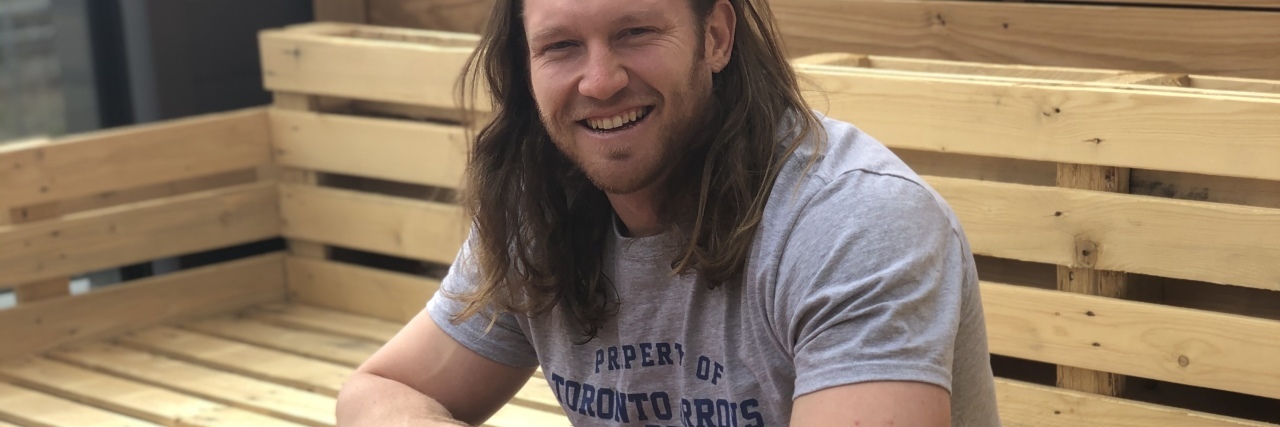What Professional Rugby Has Taught Me About My Mental Health During COVID-19
Editor’s Note: This story was written by Movember community member Dan Moor, Captain of the Toronto Arrows RFC.
My name is Dan Moor. I am the captain of the Toronto Arrows, a professional rugby team that competes in Major League Rugby (MLR) — a North American-based professional league representing the highest level of rugby on the continent. In March, our season was canceled five games into the regular season as a result of the coronavirus (COVID-19) pandemic. For myself, and many of my teammates, being an athlete is much more than an occupation. It’s much more than a passion. It’s our identity and embedded in the very fabric of who we are.
Now, it is not lost on me that our missed season is a small loss compared to what many are currently going through and what many more will go through in the coming weeks and months. Many people around the globe will experience unbearable hardship. However, I think it is important to recognize that the loss everyone will experience will shape and affect us all differently. These individualized experiences will have considerable consequences on our mental health and emotional well-being.
For my teammates and me, we have lost the central purpose driving us out of bed every day. It will undoubtedly lead to moments of feeling directionless. We have also lost the daily support network created by being around each other. Rugby forges bonds that run deeper than any I have experienced in the other realms of life — a by-product of the physical nature of the sport. But most impactfully, we have lost the opportunity. Elite sports have a finite window where an athlete can physically perform at that top level. Knowing you’ve lost a season in your prime or the lingering “what-ifs” of a journey unable to be completed, will be something we will all wrestle with. Despite my perspective being narrow, I know the loss of sports, and the social rituals surrounding it, resonates with many men who play or watch sport of any level.
In elite sport, the only constant is adversity — whether it is losses, injuries, or selection. These factors can add a lot of stress and instability to one’s life, but it also makes for an ideal training ground for dealing with uncertainty. I previously played for a professional club in England where the team’s psychologist said an average person experiences 12 great highs and lows in a year, while an athlete experiences 50. This is a testament to how visceral sport is and how the space between a field’s white lines is our arena of freest expression. My experience in sport is helping me structure a strategy to look after my mental health in this period. I hope, by sharing, it can in some way help others too.
My plan:
1. Accepting and talking.
Whenever I’ve faced deep disappointment in sport, I think accepting that a given situation sucks and then talking about it with a close friend or teammate allows me to make a plan to attack the situation and grow from it. Rarely does this happen in one conversation.
2. Movement is medicine.
I can’t claim to understand the science of it, but I think moving every day is absolutely critical to our mental health during this time.
3. Sleep is powerful.
In my experience, the best recovery from mental and physical stress is eight hours of sleep.
4. We are very much what we eat.
I know it’s a boring one, but eating right makes a huge difference.
5. Find opportunity in disappointment.
Usually, this means creating a plan to sharpen a skill or watching tape to learn from a previous poor decision. However, in this situation, it is slightly different. I truly think sport does not prepare you well for the real world. No one cares if you can spin a ball off your left hand or make a tackle, and rightfully so as these aren’t transferable skills to the workforce. It is scary how many athletes struggle with their purpose or life after sport. Now, in this period of distancing, we have an opportunity to further explore areas of interest and invest in new skills that will better ourselves for that transition.
6. There is strength in numbers.
Keeping in touch with your support structure and having meaningful conversation will help them and help you. It’s a win-win.
COVID-19 is unlike anything I’ve experienced before. Although I feel useless, I think it’s important to see we all have a role to play. I am trying to take solace in asking more of myself to prioritize my health and help my brothers and sisters to do the same.
Visit movember.com/stayingconnected for more information.
For more on the coronavirus, check out the following stories from our community:
Image via Movember

